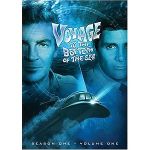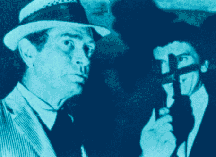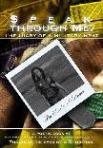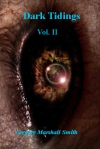The Thing From Another World. John Carter of Mars. Tarzan, Lord of the Apes. The Lost World. Classic fiction. And great examples of mixing genres.
After all, what is
Forbidden Planet but bringing Shakespeare’s
Tempest into the future?
Star Wars is really nothing more than a mix of Akira Kurosawa’s
Hidden Fortress with westerns and science fiction.
Horror and science fiction have been mixing genres from nearly their inception. Action. Adventure. Mystery. Thrills. Romance. They all figure into horror and science fiction.
In fact, I submit that you can’t help but mix genres when you write. There is even a mixed genre unto itself -- action/adventure. And look at science fiction. It is often lumped together with horror and for good reason. The two are almost inseparable.
Case in point, take John W. Campbell’s 1938 classic “Who Goes There?” (in film form, you know it better as
The Thing from Another World and the

1982 remake
The Thing). It involves an isolated research post that happens upon a crashed alien ship. They thaw it out but accidentally destroy it when the magnesium hull ignites. They do, however, save the alien pilot, a being that can take on the physical and emotional essences of whatever it touches. Soon, it is taking over bodies as the scientists try to stop it. They’re picked off one by one.
As it reads, it sounds a bit like Agatha Christie’s
Ten Little Indians, though it was written eight years earlier. It has claustrophobic tendencies that have

turned up in films like
It! Terror from Beyond Space and
Alien. The UFO fulfills the science fiction plot. And there you have it -- science fiction, horror and mystery all rolled up into one classic story.
I mean, the mere mention of aliens or even Big Brother-type governments invokes our deepest fears.
Invasion of the Body Snatchers certainly couldn't have succeeded if it hadn't played on the horror we feel at losing our individuality.
I can’t speak for other genres, but I find that science fiction gains the most from incorporating other genres into its matrix. Just look at James Cameron’s treatment of
Alien. Remember the terror when the alien burst through Kane’s chest. Then, there was the action of hunting the creature,

the thrill as Ripley raced through the ship trying to stop the self-destruct sequence, the horror as she tried to get into the EVA suit inside the escape pod without alerting the alien. One could feel the tension and frustration. Action, adventure, terror, horror, science fiction, all brought together.
Now, how do you incorporate another genre into your writing? I can’t personally say, just say I let the words come to me. When I flesh out my plot, I often don’t notice the other genre until I go back and look at it. That’s because science fiction and horror have always incorporated other genres. I mean hunting down and killing a vampire automatically involves suspense. Throw King Kong and Godzilla into man’s world and you automatically have to have action.
One thing I can say is don't force the issue. I wrote a book called
Slow Boat to China. At the urging of friends, I decided to throw some sex and romance into the mix. BIG mistake. I went through the story, adding in romance and sex and it just mucked up things. For instance, some of the heroes went to a casino/brothel to investigate smuggling. Upon rereading, I saw that I had just thrown the brothel scenes in as an excuse for the sex. It was like a porn flick where a road crew goes to a house to use the bathroom only to discover all the women inside are strippers with nothing to do. Yeah, like that really happens.
For a more visual example, try a run-of-the-mill sci-fi flick called
Monolith Monsters. In this movie, the villains are mysterious rocks from space that absorb water and grow into monstrous stalagmites that become unstable, fall over and shatter into thousands of smaller pieces that begin to grow into their own stalagmites. Anyone touching a piece is leeched of silica (the substance that makes our limbs flexible) and turned literally into stone.
If you've ever seen the movie, you'll know that the monoliths take a back seat to the forced love story between Grant Williams (star of the classic
The Incredible Shrinking Man) and Lola Albright (
Peter Gunn). These two create

enough syrup to keep Denny's and IHOP in business for a year. Add in their campy struggle to save a little girl and you end up wishing the monolith monsters would crush them. That is not the feeling you want your readers or intended audience to have.
I have to admit that, if I have a major failing in writing (and I do have some), it is with romance. I have trouble creating believable romance. Therefore, you may find the romance genre non-existent in my books. Lord knows how much trouble I had building the romance between Anna Velasquez and Maria Red Horse in
Land of the Blind.
Instead, for a better example of mixing genres, look back in history at the first half of the 20th century. You’ll get the clearest sign of genres mixing by examining early pulp fiction to the Golden Age of Science Fiction to the New Wave of Science Fiction. Edgar Rice Burroughs'
Tarzan and
John Carter of Mars, Sir Arthur Conan Doyle's
Lost World. L. Ron Hubbard's
Buckskin Brigades and the classic
Final Blackout. H. Rider Haggard's
King Solomon's Mines. The Golden Age of Science Fiction with A.E. van Vogt (
Slan), Theodore Sturgeon ("Killdozer"), Phillip K. Dick (
Do Androids Dream of Electric Sheep, We Can Remember It For You Wholesale), Robert Heinlein (
Starship Troopers, Puppet Masters), Isaac Asimov (
Foundation,
Nightfall), Walter Miller (
A Canticle for Leibowitz). Heinlein's classic
Stranger in a Strange Land successfully mixed romance, sex, science fiction and counterculture drama.



Some of the best names in science fiction came during this period: Poul Anderson, Robert Silverberg, John W. Campbell (father of space opera), Heinlein, Lester Del Rey, Arthur C. Clarke, L. Sprague de Camp. They all mixed genres freely.
Or, if you don't like sci-fi, try Daphne du Maurier's classic works such as
The Birds,
Rebecca, Jamaica Inn and
Don't Look Now. Agatha Christie mixed mystery and suspense with thrills in the aforementioned
Ten Little Indians (also known as
Ten Little Soldiers and the original title that I won't mention here, save to say it used the N-word in place of "Indian"). More recently, we see Stephanie Meyers mixing supernatural elements with teen angst and romance for her
Twilight novels. Laurell K. Hamilton has done the same with her Meredith Gentry and Anita Blake novels.
See how they all mixed everything together and came out with popular fiction. One thing I can say is that all of those writers planned ahead. They didn’t stick things in just to stick them in. If an editor said a story needed romance, they went back to the beginning and added romance; they didn’t just pick and choose spots.
So my advice is to go back and read. Then, feel free to copy from the masters, like James Cameron freely admitted he did with
Alien.
Who knows, maybe mixing genres will make you the next Heinlein, Clarke, Hamilton or Meyer.
If anything, it will give you license to experiment. Who knows what classics may come of it.
 Now it’s my turn to add my two cents, and deciding what to write has been challenging, to say the least. Then it came to me while watching American Idol, when Simon Cowell said, for probably the five hundredth time, “That was a forgettable performance.”
Now it’s my turn to add my two cents, and deciding what to write has been challenging, to say the least. Then it came to me while watching American Idol, when Simon Cowell said, for probably the five hundredth time, “That was a forgettable performance.”





 Splatterpunk—a term coined in 1986 by David J. Schow at the Twelfth World Fantasy Convention in Providence, Rhode Island—refers to a movement within horror fiction distinguished by its graphic, often gory, depiction of violence and "hyperintensive horror with no limits.”
Splatterpunk—a term coined in 1986 by David J. Schow at the Twelfth World Fantasy Convention in Providence, Rhode Island—refers to a movement within horror fiction distinguished by its graphic, often gory, depiction of violence and "hyperintensive horror with no limits.”






 How different is social networking from stalking, really? Think about how Facebook works. You spy on people, I mean read through personal status, for just the right victims, I mean friend. Then you make your move, the attack, I mean commenting or following their lead. There are also the members you don't know, who request your friendship. If you let them in, nine times out of ten, they take the next step and send you countless requests to join groups and fan clubs, along with messages to attend their events. Yes, I'm guilty of it too. Oops, forgot the harassment via instant message. We've all had to deal with it, yet we keep going back for more. It's like cold calling for the 21st century, with an actual audience.
How different is social networking from stalking, really? Think about how Facebook works. You spy on people, I mean read through personal status, for just the right victims, I mean friend. Then you make your move, the attack, I mean commenting or following their lead. There are also the members you don't know, who request your friendship. If you let them in, nine times out of ten, they take the next step and send you countless requests to join groups and fan clubs, along with messages to attend their events. Yes, I'm guilty of it too. Oops, forgot the harassment via instant message. We've all had to deal with it, yet we keep going back for more. It's like cold calling for the 21st century, with an actual audience.


 [/caption]
[/caption] [/caption]The shit really hit the fan when I read in Manuscript Makeover, and a few other places, that it's hard to sell a novella as a first time author. ARGH! That's exactly what I had been writing. Shortly before that, I started contemplating serializing The Courier. Oh, and my agent also asked if I had thought about adding in more of the traditional and biblical acceptance of Satan and the origins of evil. I replied I had for a later book, but that answer seemed absurd. When I wrapped it all up in one package, the story no longer made sense as a novella.
[/caption]The shit really hit the fan when I read in Manuscript Makeover, and a few other places, that it's hard to sell a novella as a first time author. ARGH! That's exactly what I had been writing. Shortly before that, I started contemplating serializing The Courier. Oh, and my agent also asked if I had thought about adding in more of the traditional and biblical acceptance of Satan and the origins of evil. I replied I had for a later book, but that answer seemed absurd. When I wrapped it all up in one package, the story no longer made sense as a novella. 





